BC United (BCU), known from 1903 until 2023 as the British Columbia Liberal Party or BC Liberals, is a provincial political party in British Columbia, Canada. The party has been described as conservative, neoliberal, and occupying a centre-right position on the left–right political spectrum. The party commonly describes itself as a "free enterprise coalition" and draws support from members of both the federal Liberal and Conservative parties. From the 1990s to 2024, BC United was the main centre-right opposition to the centre-left New Democratic Party (NDP). Once affiliated with the Liberal Party of Canada, the British Columbia Liberal Party became independent in 1987. The party changed its name to BC United on April 12, 2023.
The New Democratic Party of British Columbia is a social democratic political party in British Columbia, Canada. The party sits on the centre-left of the political spectrum and is one of the two major parties in British Columbia; since the 1990s, its rival was the business-oriented BC United until the Conservative Party of British Columbia reconstituted itself for the 2024 British Columbia general election, with BC United withdrawing its candidates and endorsing the Conservatives. The party is currently formally affiliated with the federal New Democratic Party and serves as its provincial branch.
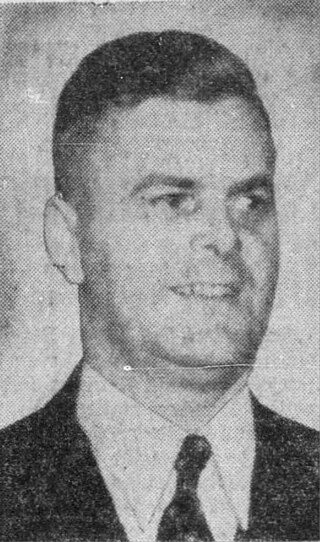
William Andrew Cecil Bennett was a Canadian politician who served as the 25th premier of British Columbia from 1952 to 1972. With just over 20 years in office, Bennett remains the longest-serving premier in British Columbia history. He was a member of the Social Credit Party (Socreds).
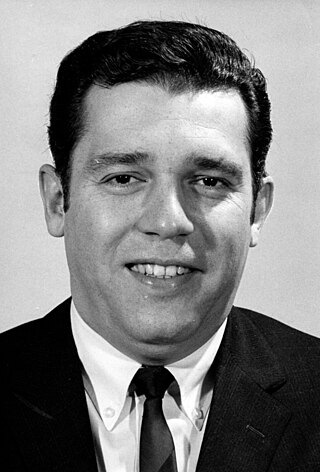
David Barrett was a politician and social worker in British Columbia, Canada. He was the 26th premier of British Columbia from 1972 to 1975.

The British Columbia Social Credit Party was a conservative political party in British Columbia, Canada. It was the governing party of British Columbia for all but three years between the 1952 provincial election and the 1991 election. For four decades, the party dominated the British Columbian political scene, with the only break occurring between the 1972 and 1975 elections when the British Columbia New Democratic Party governed. Party members were known as Socreds.
The Canadian social credit movement is a political movement originally based on the Social Credit theory of Major C. H. Douglas. Its supporters were colloquially known as Socreds in English and créditistes in French. It gained popularity and its own political party in the 1930s, as a result of the Great Depression.

The Alberta New Democratic Party, is social democratic political party in Alberta, Canada. The party sits on the centre-left to left-wing of the political spectrum and is a provincial Alberta affiliate of the federal New Democratic Party.

The 1974 Canadian federal election was held on July 8, 1974, to elect members of the House of Commons of Canada of the 30th Parliament of Canada. The governing Liberal Party was reelected, going from a minority to a majority government, and gave Prime Minister Pierre Trudeau his third term. The Progressive Conservatives, led by Robert Stanfield, did well in the Atlantic provinces, and in the West, but Liberal support in Ontario and Quebec ensured a majority Liberal government.
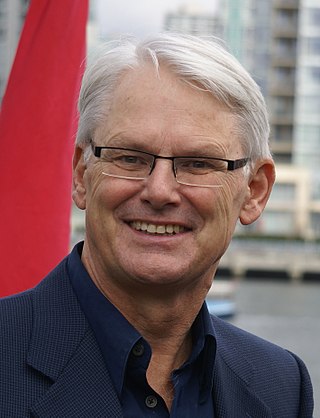
The 2001 British Columbia general election was the 37th provincial election in the Province of British Columbia, Canada. It was held to elect members of the Legislative Assembly of British Columbia. The election was called on April 18, 2001 and held on May 16, 2001. Voter turnout was 55.4 per cent of all eligible voters.

The 1991 British Columbia general election was the 35th provincial election in the Province of British Columbia, Canada. It was held to elect members of the Legislative Assembly of British Columbia. The election was called on September 19, 1991, and held on October 17, 1991. The incumbent Social Credit Party of British Columbia, which had been beset by scandals during Bill Vander Zalm's only term as premier, was defeated by the New Democratic Party of Mike Harcourt. Liberal Party leader Gordon Wilson surprised observers by leading his party to winning one-third of the votes cast, and forming the official opposition in the legislature after having held no seats at all since 1979. The new legislature met for the first time on March 17, 1992.

The 1986 British Columbia general election was the 34th general election in the Province of British Columbia, Canada. It was held to elect members of the Legislative Assembly of British Columbia. The sitting Social Credit government was re-elected.
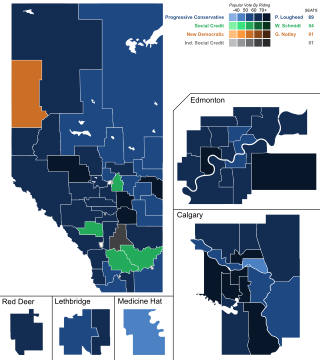
The 1975 Alberta general election was held on March 26, 1975, to elect members of the Legislative Assembly of Alberta to the 18th Alberta Legislature. The election was called on February 14, 1975 prorogued and dissolved of the 17th Alberta Legislature.
The 1983 British Columbia general election was the 33rd provincial election for the province of British Columbia, Canada. It was held to elect members of the Legislative Assembly of British Columbia. The election was called on April 7, 1983. The election was held on May 5, 1983. The new legislature that resulted from this election met for the first time on June 23, 1983.
The 1979 British Columbia general election was the 32nd general election in the Province of British Columbia, Canada. It was held to elect members of the Legislative Assembly of British Columbia. The election was called on April 3, 1979. The election was held on May 10, 1979, and the new legislature met for the first time on June 6, 1979.

The 1972 British Columbia general election for the Canadian province of British Columbia was held to elect members of the Legislative Assembly of British Columbia. The election was called on July 24, 1972, and held on August 30, 1972. The new legislature met for the first time on October 17, 1972. David Barrett led the social democratic New Democratic Party to victory, winning a majority government.
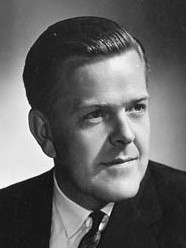
The 1963 British Columbia general election was the 27th general election in the province of British Columbia, Canada. It was held to elect members of the Legislative Assembly of British Columbia. The election was called on August 22, 1963, and held on September 30, 1963. The new legislature met for the first time on January 23, 1964.

The 1953 British Columbia general election was the 24th general election in the Province of British Columbia, Canada. It was held to elect members of the Legislative Assembly of British Columbia. The election was called on April 10, 1953, and held on June 9, 1953. The new legislature met for the first time on September 15, 1953.
The Politics of British Columbia involve not only the governance of British Columbia, Canada, and the various political factions that have held or vied for legislative power, but also a number of experiments or attempts at political and electoral reform.
The New Democratic Party is a federal political party in Canada. Widely described as social democratic, the party sits at the centre-left to left-wing of the Canadian political spectrum, with the party generally sitting to the left of the Liberal Party. The party was founded in 1961 by the Co-operative Commonwealth Federation (CCF) and the Canadian Labour Congress (CLC).
The 31st Legislative Assembly of British Columbia sat from 1976 to 1979. The members were elected in the British Columbia general election held in December 1975. The Social Credit Party led by Bill Bennett formed the government. The New Democratic Party (NDP) led by William Stewart King formed the official opposition. Dave Barrett had lost his seat in the election; he was reelected in a by-election held in June 1976 and resumed his role as party leader.













